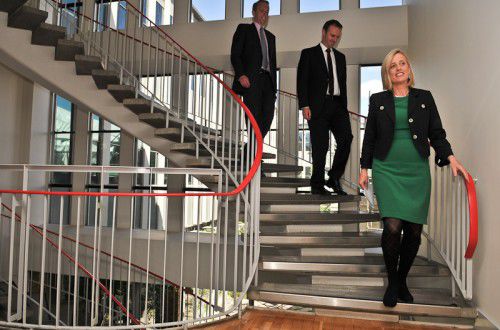ONE of the major challenges for Canberrans right now is retaining a powerful position in Commonwealth-State relations.
The wood is lost for the trees while debate rages over whether we have 17 or 25 members of the ACT Legislative Assembly, or some other iteration. With the recent change of Federal government, it has become even more important for our Chief Minister, Ministers and other MLAs to stand up for Canberra.
The size of the ACT, its nature as a Territory and the power of the Commonwealth Parliament to overrule our elected members leaves the ACT, like the NT, in a weakened negotiating position.
When Ministers sit at Ministerial Councils they have to counter these disadvantages with careful understanding of their briefs, sound evidence and prior negotiations in order to harness whatever power of persuasion they can manage.
With the Chief Minister responsible for so many portfolios herself, it begs three questions. First, can she really provide the sort of relationship building necessary to be able to grasp a full understanding of all the responsibilities assigned to her?
Second, how can she understand the briefs and the evidence behind the briefs in an appropriate amount of depth?
And, third, how will she be able to understand these tools and have the appropriate time to lobby ministers from other jurisdictions in order to negotiate effectively on key issues for the ACT?
It is interesting that despite the workload, and now having the power to appoint up to nine Ministers, the Chief Minister has announced that she will not lift the number above six until the number of members in the Assembly is expanded beyond the current 17.
There will be many who think the solution lies in a ‘town council’ approach. Why not do away with this increasingly antagonistic form of Westminster that we use and draw the cabinet from Labor, the Greens and the Liberals? This would certainly allow an increased cabinet by the appointment of nine Ministers and would lighten the ministerial load while widening the governmental opportunities.
Katy Gallagher has already accepted a Green member into the cabinet with the appointment of Shane Rattenbury. The key element was removing the bond of cabinet solidarity across a range of issues where there were key differences. These differences can then be thrashed out in the Assembly as part of the public debate.
The argument goes – why then not take the next step? Put cabinet solidarity aside, appoint ministers from across the Assembly and have an open cabinet?
Debates of cabinet can become a normal part of the work of the Assembly. Already the ACT Ministers have limited say in the operation of their portfolios as the ACT Government is divided into a series of “directorates” rather than departments. The directorates have divided reporting responsibilities. On the one hand, they report to the head bureaucrat – the head of the Chief Minister’s Department and on the other, they have to answer to their Ministers. Ministers could be appointed from across parties in the Assembly without the Chief Minister shedding too much power.
The argument has some weight. Lake Burley Griffin will freeze over before it happens! It would weaken ACT national negotiations and feed into the “glorified town council put down” by other jurisdictions and by Canberrans who are not interested in our own control of such issues as health and education.
The Opposition will simply not play ball. Why would they? They want to get elected in their own right, they argue Labor is getting tired and they are buoyed after winning just one seat short of a majority at the last election.
The key for the ACT is to ensure that the Ministers have the intelligence, capacity and hard work to be on top of their portfolios. If enough fit this category, the Chief Minister will be able to run a sound and effective government.
Michael Moore was an independent member of the ACT Legislative Assembly (1989 to 2001) and was minister for health
Who can be trusted?
In a world of spin and confusion, there’s never been a more important time to support independent journalism in Canberra.
If you trust our work online and want to enforce the power of independent voices, I invite you to make a small contribution.
Every dollar of support is invested back into our journalism to help keep citynews.com.au strong and free.
Thank you,
Ian Meikle, editor





Leave a Reply